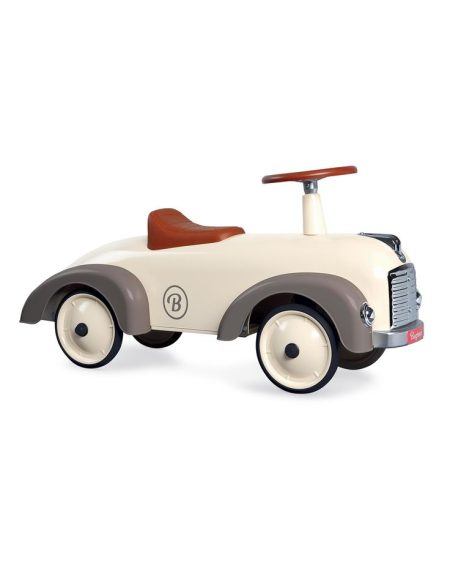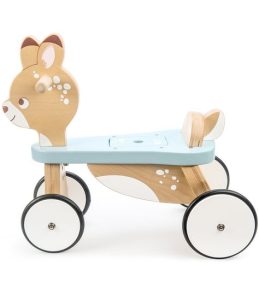The Eco-Friendly Appeal of Wooden Cars
In today’s world, where sustainability is becoming increasingly crucial, wooden cars are emerging as a beacon of eco-friendliness. Crafted from renewable resources, such as sustainably managed forests, these vehicles offer a greener alternative to their metal counterparts. By utilizing wood as the primary material, manufacturers contribute to reducing carbon emissions and minimizing environmental impact.
Sustainable Sourcing Practices
One of the key advantages of wooden cars lies in their sustainable sourcing practices. Unlike traditional automobiles, which often rely on non-renewable resources like steel and plastic, wooden cars utilize wood from responsibly managed forests. This ensures that the production process remains environmentally friendly, with minimal ecological footprint.
Biodegradability and Reduced Carbon Footprint
They also boast biodegradability, meaning they can naturally decompose at the end of their lifecycle, unlike conventional vehicles that contribute to landfill waste. Moreover, the manufacturing of wooden cars generates fewer greenhouse gas emissions compared to metal cars, further reducing their carbon footprint. As a result, choosing a wooden car aligns with eco-conscious values and promotes sustainable living.
Timeless Elegance and Craftsmanship
In addition to their eco-friendly attributes, they exude timeless elegance and craftsmanship. Each vehicle is meticulously crafted by skilled artisans, blending modern technology with traditional woodworking techniques. The result is a work of art that seamlessly integrates functionality with aesthetic appeal.
Unique Design Aesthetic
They stand out for their unique design aesthetic, offering a departure from the uniformity of mass-produced automobiles. From sleek curves to intricate detailing, each wooden car is a testament to the artisan’s creativity and passion for craftsmanship. Whether it’s the warmth of natural wood grain or the smooth contours of hand-carved panels, these vehicles captivate onlookers with their distinctive charm.
Customization Options
Furthermore, they offer ample customization options, allowing owners to personalize their vehicles according to their preferences. Whether it’s choosing the type of wood, selecting bespoke finishes, or adding custom embellishments, each car can be tailored to reflect the owner’s individual style. This level of customization fosters a sense of ownership and connection with the vehicle, making it a cherished possession for years to come.
Safety and Durability of Wooden Cars
Contrary to common misconceptions, they are not only aesthetically pleasing but also prioritize safety and durability. Modern manufacturing techniques, coupled with rigorous quality standards, ensure that they meet or exceed safety regulations. Advanced engineering processes reinforce the structural integrity of wooden vehicles, making them robust and resilient in various driving conditions.
Structural Integrity and Crash Resistance of Wooden Cars
They undergo thorough testing to assess their structural integrity and crash resistance. By utilizing high-quality wood and advanced construction methods, manufacturers create vehicles that offer exceptional protection to occupants in the event of a collision. Additionally, wood’s natural properties, such as shock absorption and flexibility, enhance the car’s ability to withstand impact forces, thereby reducing the risk of injury.
Fire Resistance and Thermal Insulation of Wooden Cars
Moreover, they exhibit inherent fire resistance properties, providing an added layer of safety for occupants. Unlike metal vehicles, which can deform and collapse under extreme heat, they maintain their structural integrity for longer durations, allowing more time for evacuation in emergency situations. Additionally, wood’s natural thermal insulation properties ensure a comfortable interior environment, regardless of external temperatures.
In conclusion, they represent a harmonious blend of eco-friendliness, timeless elegance, and safety. With their sustainable sourcing practices, unique design aesthetic, and robust construction, these vehicles offer a compelling alternative to traditional automobiles. By choosing a wooden car, consumers not only reduce their environmental footprint but also embrace a lifestyle that celebrates craftsmanship and individuality. As the automotive industry continues to evolve, they stand out as a symbol of innovation, sustainability, and enduring beauty.
The Role of Wooden Cars in Sustainable Urban Mobility
They are poised to play a pivotal role in shaping sustainable urban mobility solutions. As cities grapple with congestion, pollution, and limited space, they offer a viable alternative that prioritizes environmental responsibility without compromising on convenience or style.
Promoting Green Transportation Options
In densely populated urban areas, the adoption of wooden cars can help alleviate traffic congestion and reduce emissions, contributing to cleaner air and healthier communities. By encouraging the use of renewable resources and low-impact materials, they promote sustainable transportation options that align with the goals of urban sustainability and resilience.
They can also complement existing public transit systems and shared mobility services, providing individuals with flexible and eco-friendly transportation solutions. Whether as personal vehicles for daily commutes or as part of ride-sharing fleets, they offer an accessible and sustainable mode of travel that reduces reliance on fossil fuels and mitigates environmental impact.
Collaborative Partnerships and Innovative Solutions
The widespread adoption of wooden cars requires collaborative partnerships and innovative solutions across various sectors, including automotive manufacturing, urban planning, and sustainable development. By fostering dialogue and cooperation among stakeholders, governments, and communities, we can create an ecosystem that supports the growth and integration of wooden cars into urban mobility networks.
Incentives and Policy Support of Wooden Cars
Governments can play a crucial role in incentivizing the adoption of wooden cars through policy support, financial incentives, and regulatory frameworks that promote sustainable transportation choices. By offering tax incentives, rebates, and subsidies for electric and eco-friendly vehicles, policymakers can encourage consumers to choose wooden cars as a viable alternative to traditional automobiles.
Infrastructure Development and Accessibility
Infrastructure development is another key factor in promoting the widespread adoption of wooden cars in urban environments. By investing in charging infrastructure for electric vehicles, designated parking spaces, and dedicated lanes for eco-friendly transportation modes, cities can create a supportive environment that encourages the use of wooden cars and other sustainable mobility solutions.
Conclusion
In conclusion, wooden cars represent a sustainable and stylish alternative to traditional automobiles, offering eco-conscious consumers a greener choice for urban mobility. With their unique blend of craftsmanship, innovation, and environmental responsibility, wooden cars are poised to revolutionize the way we think about transportation in cities around the world. By embracing collaboration, innovation, and policy support, we can create a future where wooden cars play a central role in creating cleaner, safer, and more sustainable urban environments for generations to come.


